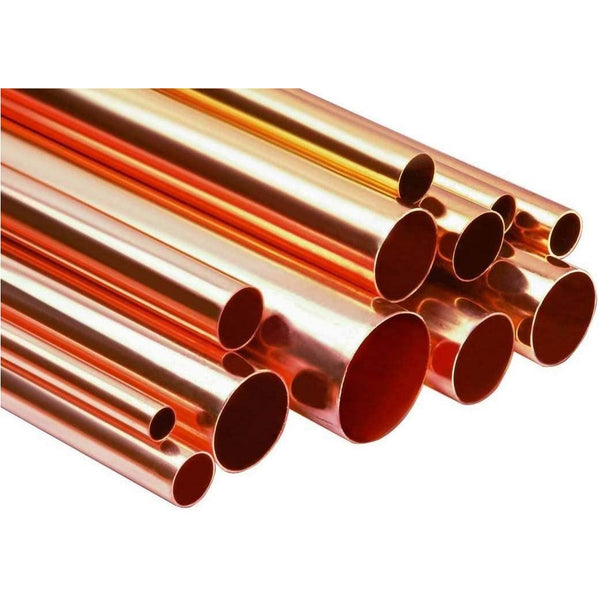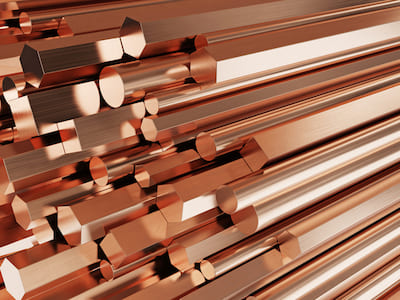Why Copper Products Are Important for Electric Applications and Effective Wiring
Why Copper Products Are Important for Electric Applications and Effective Wiring
Blog Article
Exploring the Diverse Applications of Copper Products in Modern Industries
From boosting the efficiency of electrical systems to playing a crucial duty in sustainable energy technologies, the convenience of copper is evident. As sectors increasingly focus on development and sustainability, the diverse applications of copper require a closer evaluation, specifically regarding their potential effect on future technical advancements and environmental practices.
Electrical Applications of Copper
Copper is an essential material in the electric sector, making up approximately 60% of the overall demand for non-ferrous metals globally - Copper Products. Its remarkable electrical conductivity, which is nearly twice that of aluminum, makes it the favored selection for a vast array of electric applications. From electrical wiring systems in commercial and residential buildings to high-voltage power transmission lines, copper guarantees efficiency and integrity in electrical energy distribution
In addition to wiring, copper is indispensable to the production of electric elements such as transformers, electric motors, and generators. These elements leverage copper's thermal conductivity and pliability, vital for warmth dissipation and reliable performance. In addition, copper's resistance to rust enhances the life-span and durability of electric systems, making it an economical remedy in the lengthy term.
The growth of renewable resource resources, such as solar and wind power, has actually even more enhanced the need for copper in electrical applications. As markets shift in the direction of lasting energy remedies, copper's role ends up being a lot more crucial. Overall, the adaptability and performance attributes of copper solidify its condition as a foundation product within the electric sector, driving development and efficiency across different applications.
Plumbing and Piping Solutions
In modern-day pipes systems, the option of products significantly influences both capability and durability. Copper has actually emerged as a preferred alternative due to its distinct buildings, consisting of rust resistance and antimicrobial qualities. These features guarantee that copper piping continues to be durable and secure for transferring safe and clean water, a crucial consideration in residential and commercial applications.
Among the essential advantages of copper in plumbing is its capability to withstand high temperature levels and pressures, making it appropriate for a selection of applications, from warm water systems to heating and cooling networks. Furthermore, copper's versatility enables much easier installment in complex piping designs, minimizing the risk of failures and leakages.
An additional noteworthy advantage is copper's long life expectancy, often going beyond 50 years with correct upkeep. This longevity not only lessens replacement expenses however additionally adds to lasting techniques by decreasing waste. Copper's recyclability straightens with modern-day ecological criteria, promoting a circular economy within the pipes sector.
Copper in Renewable Power
The flexibility of copper prolongs past plumbing applications, playing an essential function in the renewable power industry. In solar panels, copper is used in solar cells and electrical wiring, Read More Here promoting efficient energy conversion and transmission.

In addition, as the worldwide need for electric automobiles (EVs) boosts, copper's function in battery systems and charging framework comes to be much more considerable. The material's capacity to carry out electrical energy successfully is indispensable to the performance of EV batteries, enhancing range and billing speed.
Copper's Duty in Electronic devices
Electronic devices manufacturing relies heavily on copper's outstanding homes, particularly its high electric conductivity and thermal performance. These attributes make copper an excellent choice for a variety of electronic elements, including adapters, motherboard, and wiring. The steel's ability to effectively send electrical signals makes certain very little energy loss, which is essential in high-performance digital devices.
Additionally, copper's thermal conductivity plays a considerable role in heat dissipation, protecting sensitive elements from overheating. This is specifically vital in contemporary electronics, where small styles lead to raised warm generation. Copper is likewise preferred for its malleability and ductility, allowing it Copper Products to be easily formed into intricate designs that fulfill the needs of innovative electronic applications.
With the surge of consumer electronics, telecommunications, and electric automobiles, the demand for copper in the electronics market continues to grow. Therefore, copper stays a keystone product in the ever-expanding field of electronic devices.
Innovative Uses in Manufacturing

One noteworthy application remains in additive production, where copper-based products are used in 3D printing processes. This enables the production of complicated geometries and light-weight components, specifically in the aerospace and automotive markets. Furthermore, copper's thermal conductivity makes it a perfect option for warm exchangers, boosting performance in industrial cooling systems.
Furthermore, the increase of wise manufacturing has seen the unification of copper in IoT gadgets, where its conductive capabilities sustain advanced picking up modern technologies. In the realm of renewable resource, copper is pivotal in the manufacturing of photovoltaic panels and wind generators, facilitating extra effective power conversion and circulation.
As sectors aim for sustainability and development, copper's flexibility and performance continue to place it as an essential material, driving innovations in manufacturing and contributing to the development of smarter, extra reliable items.
Conclusion
The important function of copper in renewable energy and its important function in electronic devices emphasize its significance in advancing lasting methods. Jointly, these applications show copper's crucial contribution to technological development and industrial efficiency in contemporary culture.
From Bonuses enhancing the effectiveness of electrical systems to playing a vital duty in eco-friendly power technologies, the adaptability of copper is obvious. As markets progressively focus on advancement and sustainability, the diverse applications of copper necessitate a closer assessment, especially regarding their potential influence on future environmental methods and technological innovations.
The growth of renewable energy sources, such as solar and wind power, has actually better boosted the demand for copper in electrical applications. Generally, the convenience and performance qualities of copper solidify its standing as a foundation material within the electrical sector, driving development and efficiency throughout various applications.
The convenience of copper extends beyond pipes applications, playing a vital function in the eco-friendly energy sector.
Report this page